|
Yesterday, Angels of Impact was honoured to be one of the presenters at Startup Asia Women’s Pushing the Impact Envelope at Unilever Level3. It was an insightful day of learning as corporations, startups, and individuals came together to learn how we can further social impact. Firstly, our Co-Founder and Chairwoman Laina Greene spoke about how women are empowering the bottom of the pyramid. She shared about 3 main points: Poverty and Sustainability, Women and Sustainable impact and Moving beyond Charity. On No poverty which is UNSDG #1, Laina shared how she believes poverty is the root cause of all evils. Take, for example, environmental degradation: it is often the poor who are forced to cut down the trees and participate in other unsustainable practices as their only means of income and livelihood. Laina also implored the audience to think about how are we perpetuating poverty? A shirt that the worker was paid 60 cents to make can be bought at $50. She encouraged the audience to be conscious and ask where the items they bought really came from. She then shared about Angels of Impact’s specially curated online marketplace of sustainable and ethical products which aims to bring forward the stories of the social enterprises we work with and encourage conscious consumerism. Next, Laina touched on women and sustainable impact. Data has shown that women are good investments. If we only have one dollar in the world give it to women who will solve the problem! Laina discussed that although we have achieved the UN Millennium Development Goal of halving extreme poverty in the world, there is still a phenomenon called the feminisation of poverty - where women represent a disproportionate proportion of the poor. This is because they are often the invisible infrastructure of society - they are the ones who have to walk for miles to find water, tend to the children and chores and carry out subsistence farming. As a result, they often get left behind when economic opportunities come. However, research shows that women are key to ending poverty. Income in the hands of the mother has a tremendous impact on healthcare and nutrition,far greater than the in the hands of the father. Thus there is a need to see women as the solution to ending poverty. Laina then touched on the need to move beyond charity such as through social entrepreneurship. For example, Angels of Impact works with social enterprises which have transparent and ethical supply chains like Krakakoa, Javara, Toraja Melo and Siam Organic to lift communities out of poverty. Laina then closed her speech by reaffirming Angel’s of Impact’s massive transformative purpose of creating a world without poverty in unity with women and bringing social enterprises to the market. She encouraged the audience to live out the 3 UNSDGs of #1 No Poverty; #5 Gender Equality and #12 Responsible Consumption and Production. Just starting with those have the potential to make huge impact. Later in the evening, our Co-Founder and CEO Audrey Tan shared about the what, whys and hows on investing in women social impact enterprises. Why begin Angels of Impact in the first place? One of the key reasons was a report published by Acumen and Monitor Group report which found that a lot of women businesses and impact businesses were too large for seed funding but too small for impact funding. This created a gap where they were not able to access financing. Furthermore, only 7% of Venture Capital funds go to women-owned businesses.
Audrey moved on to share that we should not see women businesses and women social entrepreneurs as victims who need help but rather to see that there is a need to include them into the agenda. It’s about giving women a voice. Research shows that women entrepreneurs are capable of handling large amounts of funding. According to Forbes, women entrepreneurs bring in 20% more revenue with 50% less money compared to their male counterparts. This shows that women are not victims, women are good investments and that we can invest in women. Next, a lot of impact investing spaces and groups are actually closed networks. Billions of dollars have been channeled into impact funding however many women-led social enterprises are still not getting access to the funding. Furthermore, many of these impact investments networks were for accredited investors only. This meant money was being circulated in closed networks. Audrey moved on to share how ordinary people can contribute to impact investing. For example, we can help fund local social enterprises. Many of these social enterprises have been trying to fundraise and close their funding gap for a long time. Angels of Impact comes into matchmake social enterprises to angel funders and angel investors. However, expectations of returns from an impact investor’s standpoint needs to be changed as high returns in a short period of time is not realistic for many social enterprises. She went on to share the personal story of Dinny Jusuf, the founder of Torajamelo, which is one of the social enterprises that Angels of Impact works with. Torajamelo works with women weavers across Indonesia to produce clothing, gifts, accessories, etc. Many of these women were victims of abuse or sex trafficking, and Torajamelo is able to give them a dignified livelihood and income. However, Dinny was unable to gain access to funding. Inspired by Dinny’s story, Audrey invested some money into Torajamelo--money that would have otherwise gone to donations. This model of financing is known as an evergreen fund, where the money loaned to these women entrepreneurs can be repaid back into an evergreen pool and re-invested to even more women entrepreneurs. Audrey closed her speech by sharing how Angels of Impact also invests time by linking women entrepreneurs with corporates, some of whom include companies such as Facebook, Google and Bloomberg. Many of these companies now purchase products from social enterprises such as Krarakoa and Javara for their pantries. By doing so, corporates are able to integrate doing good directly into their supply chains. We would like to thank everyone who came down to listen to Laina and Audrey speak, as well as all the other presenters who shared their own nuggets of wisdom. It was extremely heartening to see so many people passionate about furthering social impact all gathered together in the same room. Special thanks also to Startup Asia Women, who made the event possible and such a success. Last but not least, we would also like to thank everyone who expressed their interest in supporting our mission, and we look forward to further expanding our outreach from here on. We are incredibly grateful and honoured to have been nominated by the National Youth Council to receive the Ten Accomplished Youth Organizations (TAYO) in ASEAN Award. The award is given out to youth and youth serving organisations in ASEAN member countries that have implemented sustainable programmes, projects and activities that may be replicated by other organisations. From 17 July to 21 July 2017, in conjunction with the ASEAN Senior Officials Meeting on Youth (SOMY), Angels of Impact represented by our 2 Co-Founders Audrey Tan and Laina Greene, as well as our Innovation and Business Development Manager Bryan Lum, also participated in the ASEAN Youth Forum held at The Sultan Hotel, Jakarta, Indonesia. This award is especially meaningful to us as Angels of Impact strives to serve the ASEAN community by working together with women to alleviate poverty in the region. The meaningful connections and insights gained throughout these past week will certainly go a long way in achieving the UNSDGs of No Poverty; Gender Equality and Responsible Consumption and Production. We were also honoured to have had the opportunity to contribute to the ASEAN Joint Youth Statement where our Co-Founder and CEO Audrey, raise a greater emphasis of UNSDG #5, gender equality in ASEAN, to impact more girls and young people in the proliferation of social entrepreneurship. The week was filled with many insightful discussions and moments of inspiration as we participated in thought-provoking workshops, panel sessions and networking sessions. We were glad to have the opportunity to share our experience with social entrepreneurship with the community. We were also really excited to connect with like-minded individuals from Mynmar, Laos, Cambodia and the ASEAN states, who share our vision of creating a more sustainable and compassionate world. We would like to take this opportunity to thank our community of Angels for your neverending support and love. This award would not have been possible without you! As the event draws to a close, we remain ever-committed to our mission and we will continue working hard to create a world without poverty in unity with women. Want to know more about how you can contribute to the alleviation of poverty? Follow us on facebook and come to our next event! With the Singapore contingent, Silat stars, Shakir Senior and Shaykir Junior, team from NYC and MCCY
On the 11th of July, we were invited to BlackRock to share more about our work. In her speech, our Co-Founder, Laina Raveendran Greene, posed three overarching questions: why are we targeting poverty, why are we targeting women, and why social entrepreneurship? To answer the first question, Laina explained that poverty is often the root cause of many other problems, such as corruption or gender inequality. She also discussed how many businesses, such as fast fashion or fast food, often exploit the poor—when we purchase a new scarf at a great deal, how often do we stop and wonder how exactly that low price came about? The best way to combat that problem, then, is to spend your dollars on sustainable businesses instead, and A.I. has made it easy by bringing sustainable, responsible products directly to your doorstep. As for the second question—why target women—Laina urged the audience to close their eyes and think about poverty. The image that often pops up in your mind is that of a woman sitting at the side of a street, holding in a child in her arms and begging. Although we have achieved the U.N. Millennium Development Goal of halving extreme poverty, the majority of people still living in poverty today are women. This is because women are often the “invisible infrastructure” of the community: they are the ones who carry water, look after children, take care of subsistence farming, and so on. As a result, women are often left behind when new opportunities arrive. While women been left behind in the fight to eradicate poverty, data has now shown that women also make good investments. When you help a woman, you don’t just help a single individual; you also help her family and her community. Furthermore, according to Forbes, women entrepreneurs bring in 20% more revenue with 50% less money invested. In other words, investing in women is not just the right thing to do—it’s also the smart thing to do. However, there also exists an unconscious bias that women can only receive micro-finance. Although women have graduated from micro-finance, investors for the most part, have not seen how they are now ready for larger funds. As such, A.I. works to educate people, helping them to move beyond micro-finance and to support social enterprises to grow and scale. This brings us to our third question: why social entrepreneurship? Prof Yunus in his book "Creating a world without poverty" has clearly shown that we need to move beyond charity. Meanwhile, Richard Branson, states that the brands that will thrive in the years to come are the ones that have purpose beyond profit. These companies are not only more sustainable, but also help to create a more just society. A.I. recognises that the most sustainable way of to make an impact is through social entrepreneurship, and not charity or donations. However, the problem with many social enterprises is that they are too big for small loans, yet also too small for impacted investors at the same time. As a result, they end up stuck in a chasm that the Monitor Group in their report "From Blueprint to Scale" calls the “pioneer gap”.
A.I. has a pool of women social enterprises that they support that are at the cutting edge of this new kind of business. Laina raised the example of Krakakoa, which works directly with smallholder farmers in Indonesia for bean-to-bar chocolates. This allows farmers to move up the value chain, thereby getting out of poverty. A.I. has been working with them to help flow funding and open doors for sales to help them cross this chasm. Laina then urged the audience to donate their most precious resource of time and: their business-related skills. As a corporate, these skills are invaluable in helping social enterprises to succeed. Apart from volunteering skills, we can also directly fund these enterprises through investments and to support them by simply buying their products, be it as a personal or corporate gift. Laina ended the speech by recalling the words of Prof Muhammed Yunus: that poverty can be ended. If we all do our part, we can put poverty in the museums. Together in unity, we can, in fact, end poverty. |
Angels of Impact A.I.Receive thought leadership, news, updates and events activities Archives
July 2017
Categories |
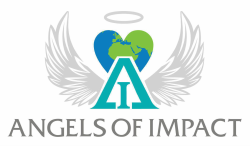

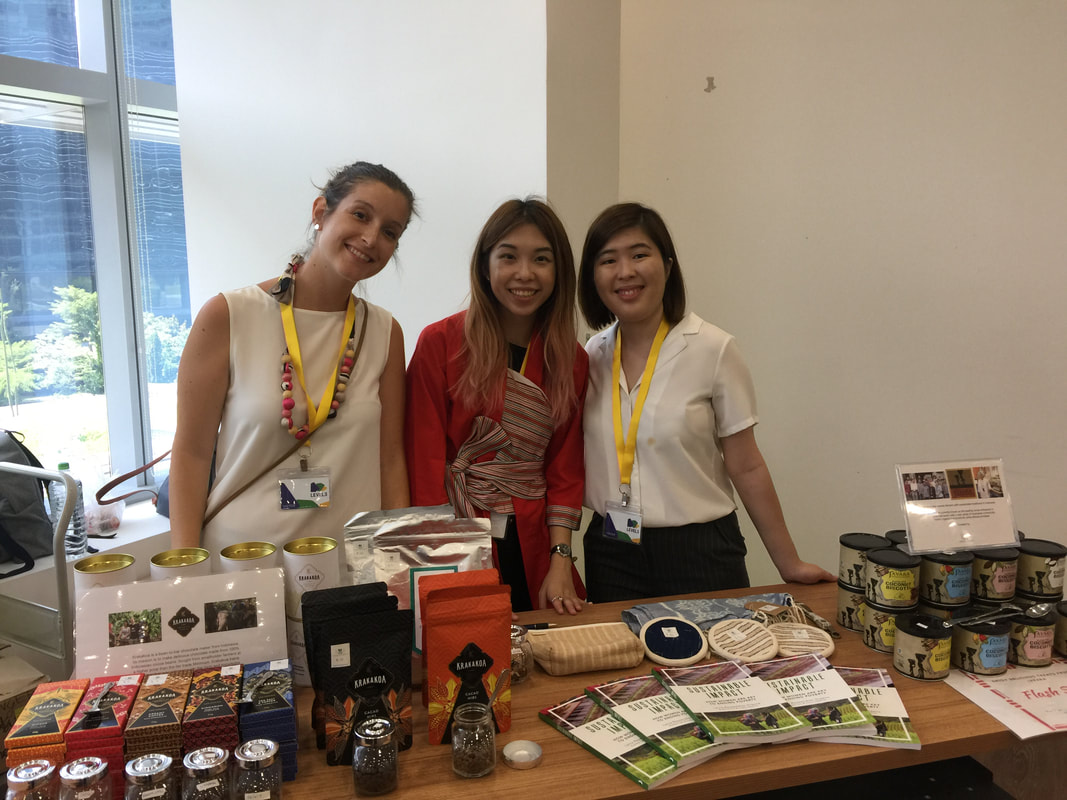

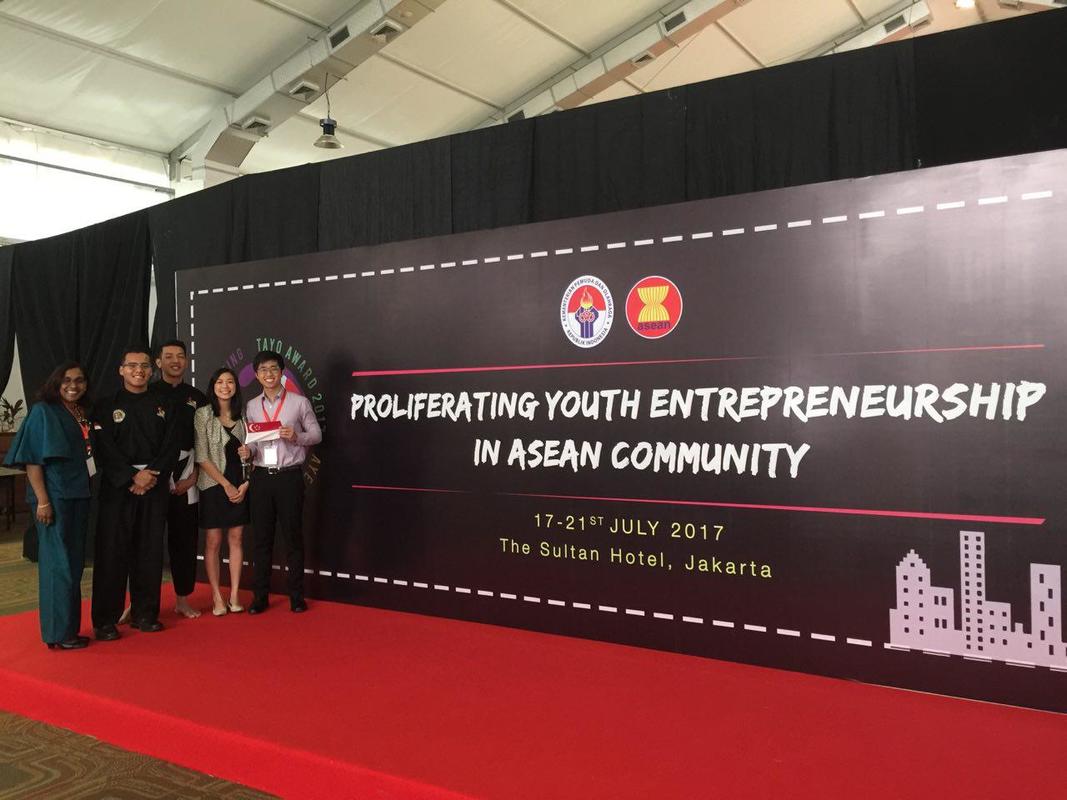
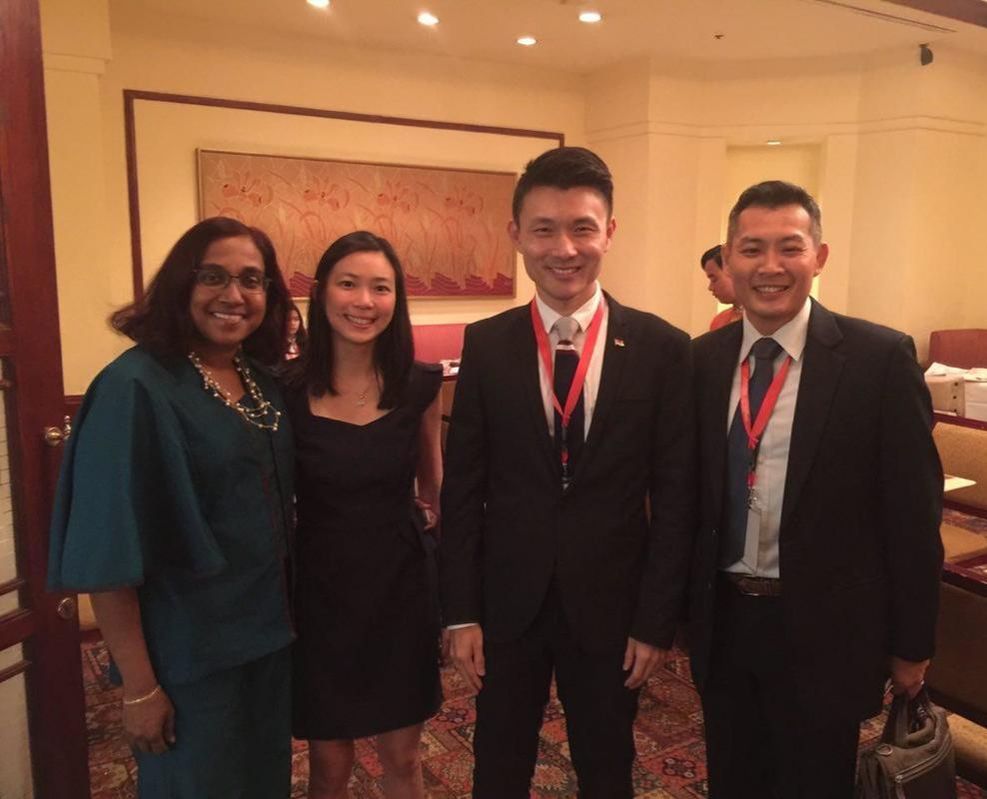
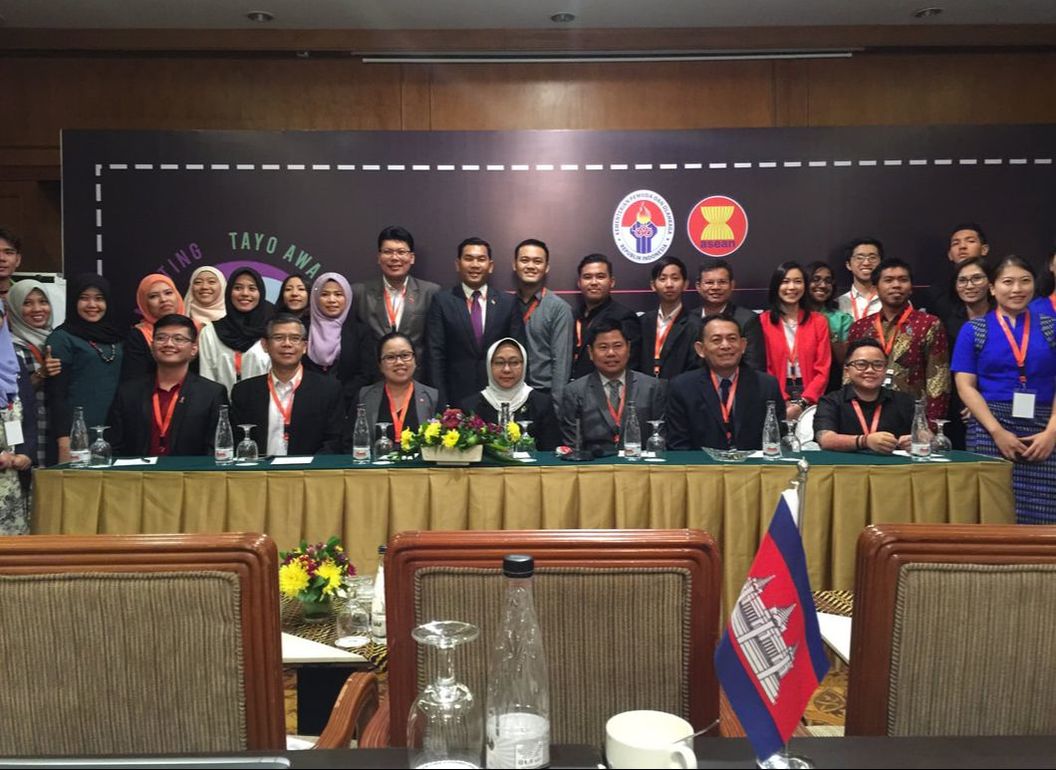
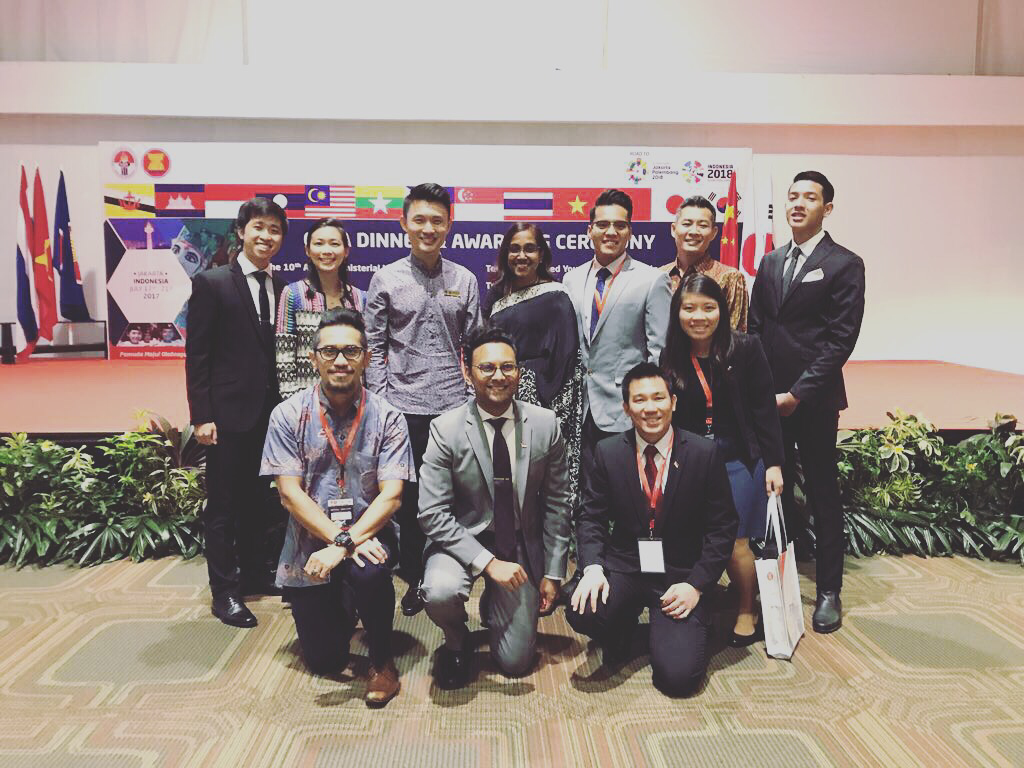




 RSS Feed
RSS Feed